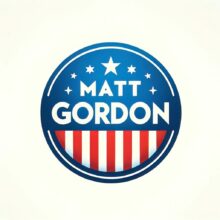Here’s a breakdown of my 2020 reading goals. Feel free to play along, if you want…
After I had my stroke in March of 2018, I felt an insatiable desire to learn. I think that on some level, my brain needed the workout of digesting new information and creating new connections in my head. I also think that I needed to prove to myself that I could still think clearly.
I took a number of online courses and started reading a bit more (when I felt up to it). I didn’t read quite as much as I would have liked in 2019, due to an unexpected (but very welcome) move in the spring and a new puppy in the summer.
For 2020, I’ve determined to become a little more intentional about reading. To that end, I’ve set up a few “projects…”
Project #1: Read the entire Bible (Old Testament and New Testament)
This is something I’ve done multiple times in the past, but this will be my first run through all 66 books in a couple of years. I didn’t have a daily reading plan in 2019, and in 2018, I dropped the Old Testament in favor of reading the New Testament several times.
This year, I’ll go back to a reading plan I’ve used in the past. I’ve also picked up a copy of The MacArthur Bible Commentary to use as an aid while reading.
I’m looking forward to reading through the entire Bible in a year again. One reason is that the more I study most subjects, the “smaller” that subject becomes. But the more I study the Bible, the more I find there is to learn. I’m excited to see what new things I’ll pick up with this reading.
Project #2: Read “Abraham Lincoln: A Life,” by Michael Burlingame
This two-volume biography is not just one of the “top Lincoln books of all time,” it’s currently THE go-to Lincoln biography. Burlingame’s effort is universally considered the finest (and most complete) Lincoln biography in at least 60 years, and I doubt anything is going to supplant its position in my lifetime.
This is Professor Burlingame’s 12th book on Abraham Lincoln, and it’s a remarkable achievement. I can’t wait to dive in.
Project #3: Read the complete works of Shakespeare
Speaking of Lincoln, the President wrote this letter to his favorite actor, James Hackett, on August 17, 1863 (it now resides in the Library of Congress):
“Some of Shakespeare’s plays I have never read, while others I have gone over perhaps as frequently as any unprofessional reader. Among the latter are Lear, Richard Third, Henry Eighth, Hamlet, and especially Macbeth. I think nothing equals Macbeth—It is wonderful.”
(excerpt from letter)
I’m looking forward to walking in the footsteps of our 16th President by reading not just the plays he mentions, but all 38 plays, 154 sonnets, and the five poems credited to Shakespeare. It’s going to be challenging, but I think it will also be highly rewarding. I’m really excited to get started, but I don’t really feel up to the task.
In an effort to ensure I could measure up to this challenge, I enlisted the advice of Benjamin McEvoy, who studied Shakespeare at Oxford University. He was incredibly generous with his expertise. He combined his advice along with some material he was already working on to create this massive blog post. As far as I can tell, it’s simply the best advice available on the Internet for tackling this project. I’m sure I’ll refer back to it many times throughout the coming year.
What else?
In addition to the above projects, I’ve also got a number of interesting books on my “TBR list.” Some of the highlights include:
Shoe Dog, by Phil Knight
Phil Knight started Nike. Seems like that went pretty well, no? Well, not exactly… there were lots of plot twists to his story, and more than a few times when failure seemed inevitable. I don’t think I could provide a better review than Bill Gates, so I’ll just link to his outstanding write-up.
The Civil War: A Narrative: Volume 2: Fredericksburg to Meridian by Shelby Foote
This is the second book in a three volume narrative of the American Civil War. I finished the first book earlier this year and I’m looking forward to getting back to the topic after a short break to read unrelated things.
Shelby Foote came to prominence as one of the experts featured in a Ken Burns documentary about the Civil War back in the 80’s. The series reads like a novel, and Foote writes as he speaks — his style is that of a courtly Southern gentleman sitting in his parlor, telling you a story. I’ll get to this one in the spring, hopefully, and then finish the series in 2021.
The Big Sleep by Raymond Chandler
One of the most celebrated novels in 20th century American literature. This book defines pulp fiction in many people’s eyes, and I was fortunate to receive a lovely annotated edition as a gift. I’m a fan of the Humphrey Bogart movie of the same title, but I’m told that it bears only passing resemblance to the novel.
An Astronaut’s Guide to Life on Earth: What Going to Space Taught Me About Ingenuity, Determination, and Being Prepared for Anything by Chris Hadfield
If I were given the opportunity to go to space, I’d get up right now, head down to NASA, and leave this blog post sitting here unpublished. I wouldn’t even think twice, let alone take the extra time to hit “Publish.”
One of the first online classes I took after my stroke was the Masterclass course on Space Exploration, taught by Colonel Chris Hadfield. Not only is he a really sharp guy, but he’s also an interesting and engaging teacher. This course was by far more pleasurable than nearly anything else I’ve ever learned.
What about you?
Do you have any reading goals for 2020?
